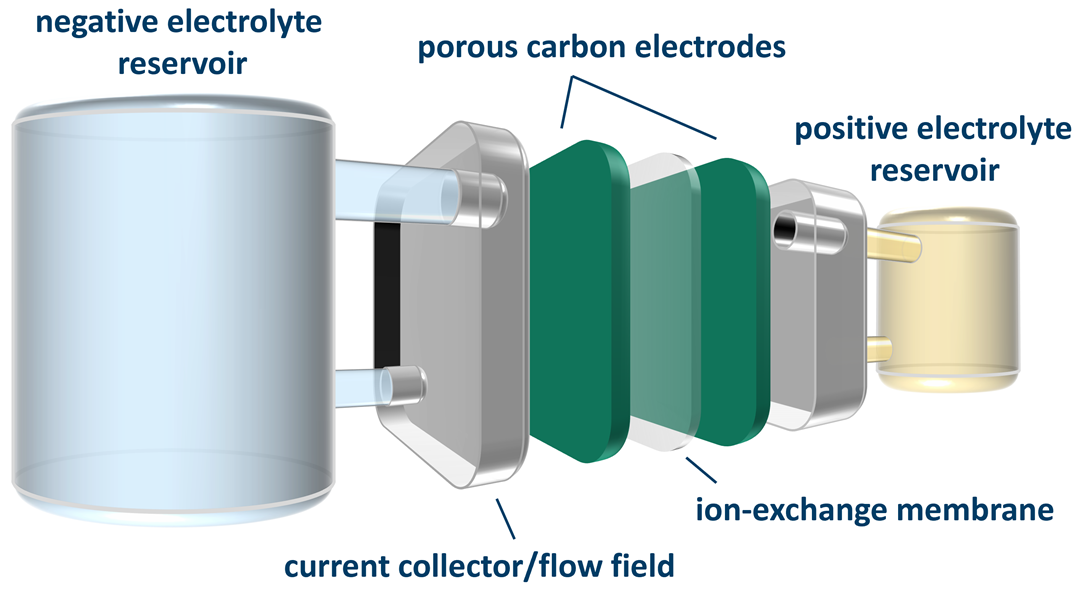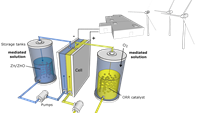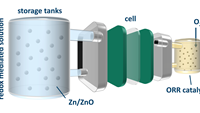Nevertheless, their widespread commercialization faces obstacles such as relatively high CAPEX and concerns regarding safety and sustainability, particularly regarding the toxicity and corrosiveness of vanadium. SINTEF is central in pioneering advancements in chemistry and flow system designs to unlock the full potential of flow batteries, enabling them to meet our future energy storage needs efficiently and sustainably.

Flow batteries are promising candidates to address the needs of a grid-scale energy storage system for intermittent renewable energies because of the decoupling of power and energy. Flow batteries are a type of energy storage system that operate based on the principle of chemical reactions involving the exchange of electrons between two electrolytes, one oxidized and the other reduced, separated by an ion-exchange membrane.
The technology, consisting of energy storage tanks, flow system, and a stack of cells, allows flexible modular design, low maintenance costs, and excellent scalability. Their energy capacity can be easily adjusted by simply increasing the size of the electrolyte tanks, making them suitable for both small-scale and grid-scale applications. They also offer a longer lifetime compared to some other battery technologies, making them a reliable choice for long-term energy storage needs.
Nevertheless, their widespread commercialization faces obstacles such as relatively high cost of the electrolyte materials and concerns regarding safety and sustainability, particularly regarding the toxicity and corrosiveness of vanadium. Overcoming these challenges necessitates enhancements in the efficiency of the energy conversion process, increased membrane durability, and addressing environmental concerns tied to the manufacturing and disposal of electrolyte materials, such as vanadium or other commonly used metals.
Overall, flow batteries hold great promise for large-scale energy storage but require ongoing research and development efforts to overcome their limitations and make them more economically and environmentally viable.
SINTEF has a wide range of competence within flow battery technologies, ranging from electrochemical characterization to multi-scale modelling to life cycle assessment. Currently, SINTEF is focusing on the following topics:
- Development of porous electrodes for hybrid zinc-air flow batteries
- Electrochemical characterisation and laboratory-scale testing and validation of inorganic flow batteries
- Multi-physics modelling and simulation for optimisation of electrode structure and cell design
- Life cycle assessment of advanced inorganic flow batteries
Relevant projects:


